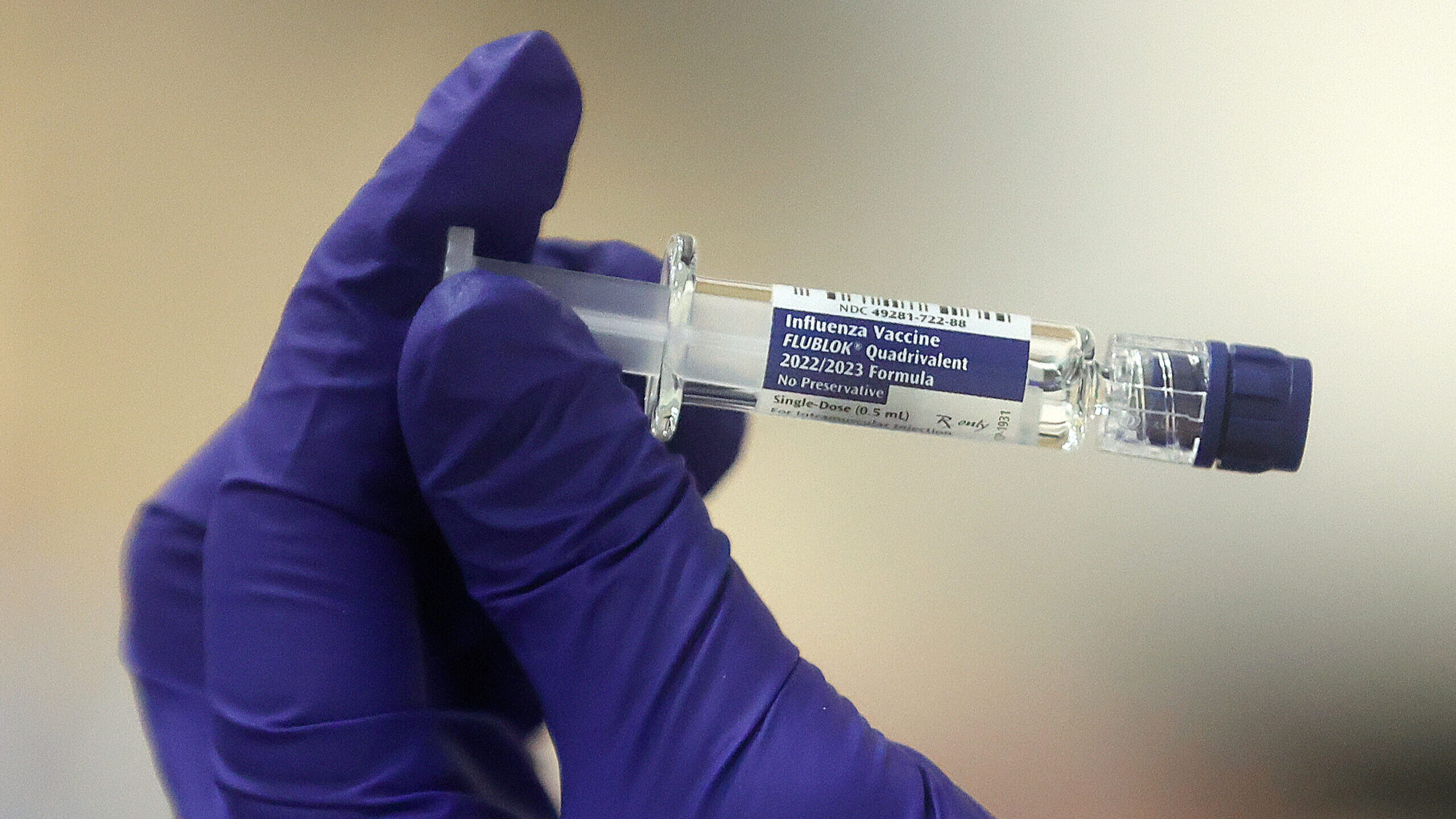Cancer vaccine doesn’t prevent cancer — it treats it
Jun 29, 2023, 2:00 PM

An influenza vaccine is pictured at a free vaccine clinic at the Sanderson Community Center in Taylorsville on Wednesday, Nov. 9, 2022. (Kristin Murphy/Deseret News)
(Kristin Murphy/Deseret News)
SALT LAKE CITY — The latest hot topic in cancer research is a cancer vaccine. But is this like the common use of the word vaccine — a substance put in your body to prevent you from getting a disease — in this instance, cancer?
It’s not, so let’s dive in.
The idea of a cancer vaccine
“Cancer vaccine is not a new concept,” said Dr. Siwen Hu-Lieskovan, the director of solid tumor immunotherapy at Huntsman Cancer Institute. “Even before the modern immunotherapy that developed in the last ten years, the first cancer vaccine was actually developed 100 years ago. A surgeon observed a cancer patient who had a really bad cold. He survived the cold (not a given back then) and his tumor shrank.”
What that century-old doctor realized was that when the body responded to infection well, it also targeted the tumor. He went on to create a bacteria toxin that he injected into tumors.
The problem was that the tumor vaccine was not very effective, especially when compared to radiation therapy that came along in the 1950s.
Understanding our immune system and cancer
Because of research that Hu-Lieskovan and others have done in the last 20 to 30 years, we now know that if you have a competent immune system, your immune system can recognize that tumor cells are different from normal cells. The mutations give them away.
“[Your immune cells] recognize that this is something different they should kill, just like killing a bacteria or a virus,” said Hu-Lieskovan.
It makes sense, then, that patients with compromised immune systems are more likely to develop cancer. But why do so many people with perfectly strong immune systems still get cancer?
“There are critical checkpoints, like stop signs, that the cancer cells can use to escape the immune attack,” Hu-Lieskovan said. “We now have drugs called checkpoint inhibitors that have been developed to take away the stop signs to the immune system.”
The vaccine is another cancer treatment, not preventative
“When we think about cancer, we think about an evil cell,” Hu-Lieskovan said. “There are so many different kinds of tumors that can happen in different organs. So we cannot lump them together and say ‘Can we just prevent cancer?’ What kind of cancer are we talking about?”
Hu-Lieskovan says the goal of the cancer vaccine is to train the body to kill cancer cells that are already there and hard to kill.
“It’s not preventative,” said Hu-Lieskovan. “It’s treatment. We use the vaccine to train the immune system. We tell it, ‘OK — that’s a mutation. That’s a cancer cell that you should kill.'”
Here’s the most exciting part.
The personalized cancer vaccine
The highlight of recent research is the personalized vaccine.
“Each patient has a different set of mutation profiles,” Hu-Lieskovan said. “The antigen that is immunogenic is different from person to person.”
Hu-Lieskovan is a phase I doctor who runs trials to test novel cancer treatments. Her whole focus is immunotherapy.
“I’ve treated patients with novel cancer vaccines, more personalized vaccines,” she said. “It involves a lot more specialty and process to get the drug to the patient, and that’s challenging.”
The doctor has had a good experience with personalized vaccines, but she believes FDA approval is still years away.













